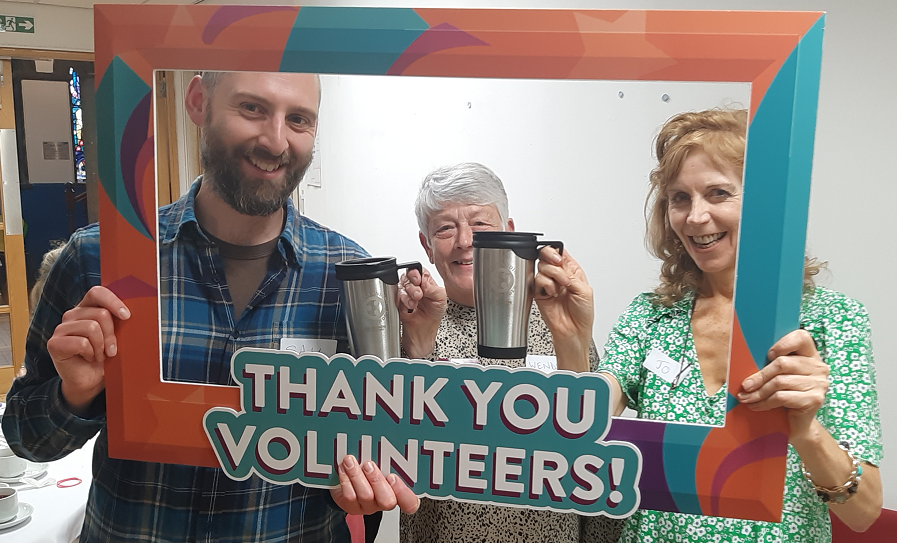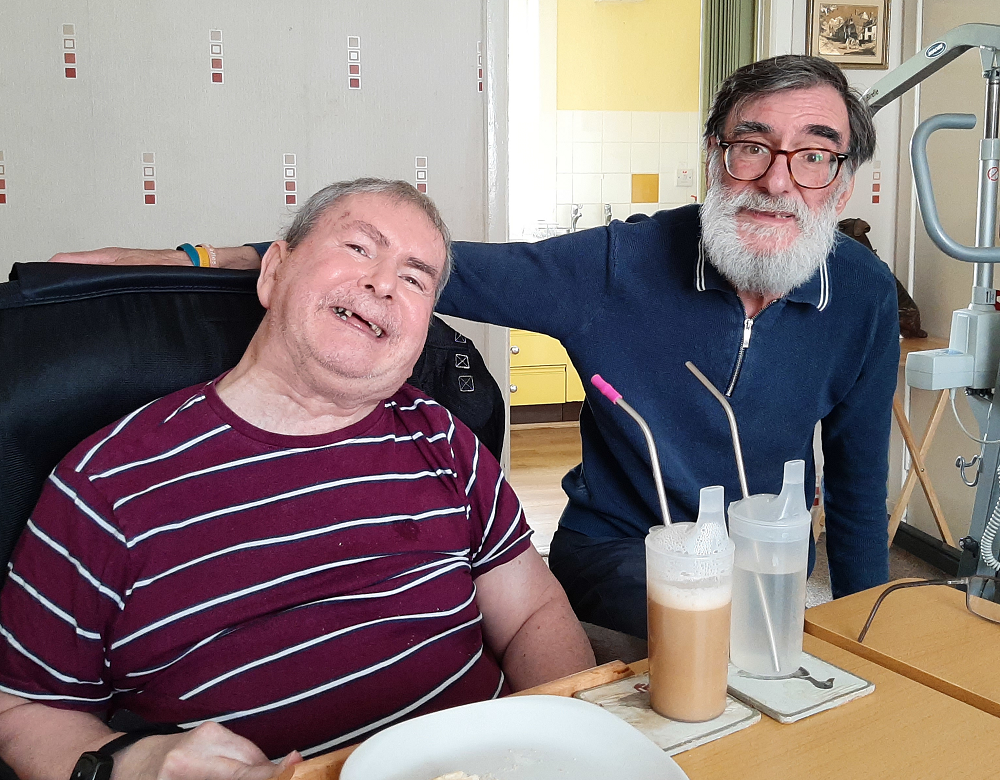
At Ecas we owe a huge thank you to all of our volunteers, who help to make our services special. This is especially the case with our Befriending Service, which runs on the generosity and dedication of our volunteer befrienders. In this post, we sit down with our Befriending Manager, Sam Collins, to find out about Volunteer Training and what Ecas does to bring newcomers up to speed!
What volunteer training do you provide at Ecas?
For our volunteer befrienders we provide two evenings of training to prepare them for being matched up with someone. This covers what befriending is and isn’t, confidentiality and safeguarding, health and safety, disability awareness, communication, Ecas policies and the matching process.
We also work with an Occupational Therapist to provide wheelchair handling training for volunteers who are matched up with wheelchair users and are interested in supporting them in that way.
With our volunteers coming from all walks of life, we aim to be flexible with our training, based on who we have coming through at any one time. This means we can offer daytime training sessions, and 1-to-1 sessions when required.
How do you keep your training up to date?
Volunteer training has been a part of our Befriending Service since its inception in 2007. I have been delivering the training, first with the former Befriending Manager, now CEO, Ally Irvine, and with the current Befriending Assistant Gary Smith since 2016. I have learned over that time how to make it a comfortable, enjoyable and valuable experience for our volunteers.
‘It was friendly, encouraging, and we were all made to feel that our opinions and ideas were relevant. I am not always good in group situations but felt very comfortable here. It was good to have food, as I came straight from work!’ feedback from Befriending Volunteer Training
Ecas were able to send me on Befriending Networks’ Vital Skills in Befriending training, which included a module on Training for Trainers, which was a fantastic preparation.
As a staff team we are keen to make sure that we are paying attention to the latest developments and what others groups are doing within befriending, so we stay connected to Befriending Networks to use up-to-date resources from their Volunteer Training Toolkits.
How important is learning in the work of the Ecas befriending service?
For our befrienders, getting to know someone new is a learning curve. During the volunteer training, we keep in mind that many may not have volunteered before, or not know much about the effects of disability or isolation. During training there are still unknowns for volunteers, specific to the individual they will be matched with, so we guide them through that learning process.
Our biannual Volunteer Days are important too because they give volunteers a chance to connect and learn from each other’s experiences, as the regular work of a befriender is conducted as an individual. We also often have exercises or guest speakers on those days to provide some extra insight on a particular topic.
What is your favourite part of a training session?
Gary and I split duties when it comes to meeting new volunteers. This means that I haven’t always met all of the volunteers prior to a training session – so getting to meet them for the first time is always fun and interesting! My favourite content in the training session is the boundaries exercises where we ask volunteers to consider how they would respond to a series of scenarios. We spend plenty of time on that and it’s always fun and the most popular part with trainees too.
Apart from that, the breaks we have between the training are really valuable because people start chatting away (befrienders like to talk!), they enjoy some cake and nibbles and have time to reflect on some of the content of the session.
What helps to make a great volunteer training session?
As volunteers are giving up their time for the training, we always ensure that we are properly prepared and that we keep to the time schedule they expect. Ultimately, we want to create an environment in which volunteers feel comfortable to get up and move around if they need to, talk about the issues they want to bring up, ask questions, etc. They will be able to get more out of the time and feel more comfortable going into a befriending match.

We always emphasise to our volunteers that they do not have to do everything on their own – Ecas is always there to support them and make their volunteering experience as fun as it can be.
Interested in Befriending?
Live in Edinburgh and interested in being an Ecas Befriender?
Get in touch with Ecas today to find out more!
Speak with Sam on 07825 305 376
Email sam@ecas.scot
Visit Becoming an Befriender for more information.